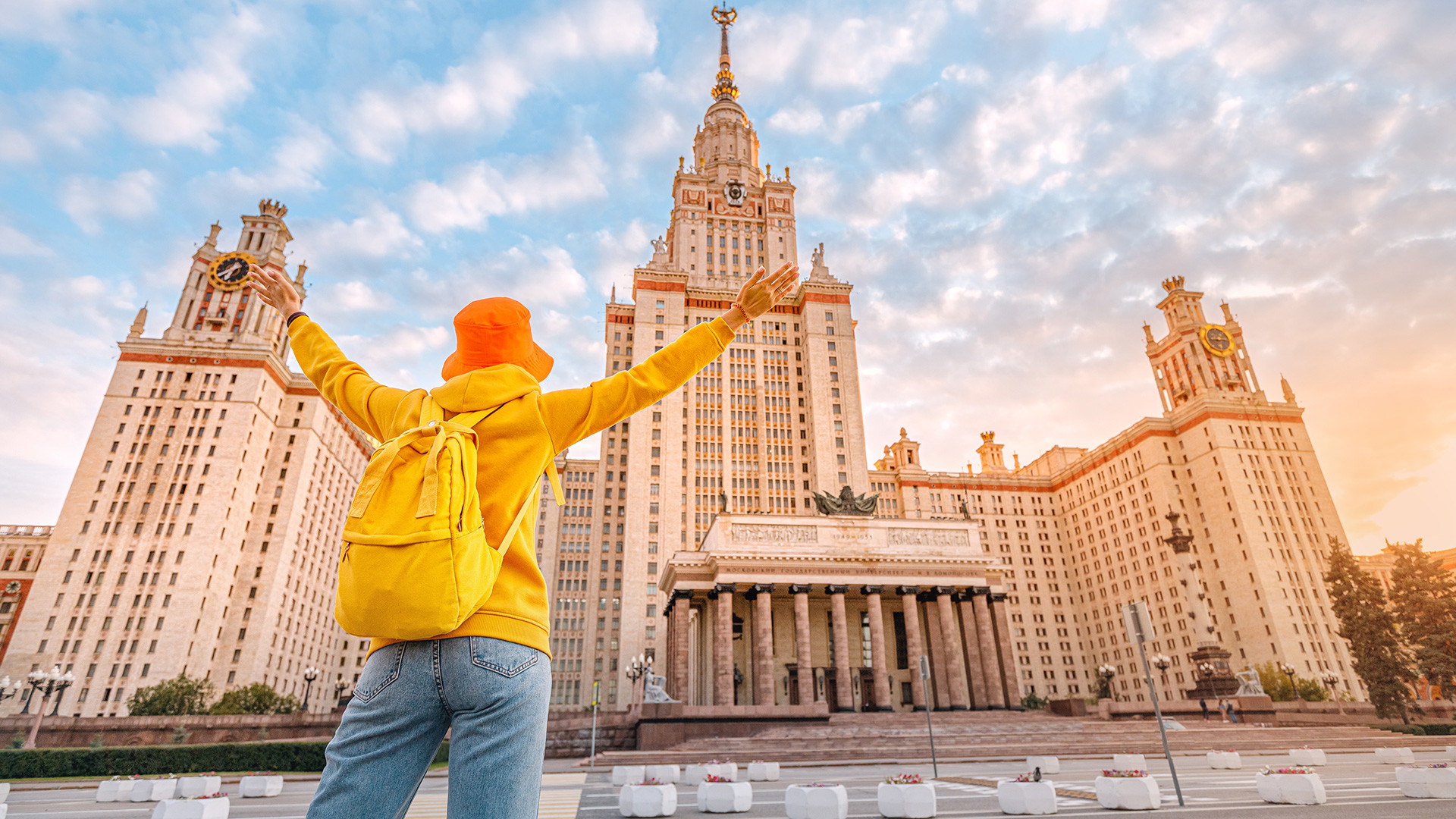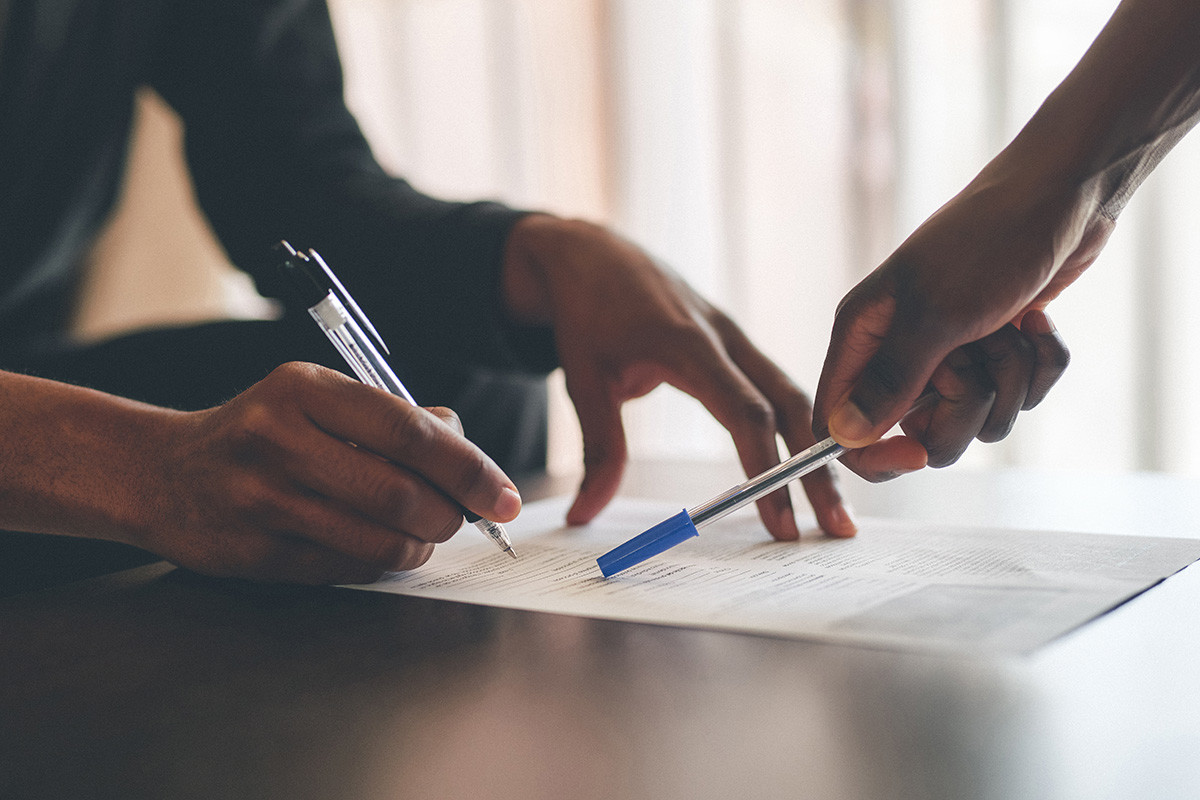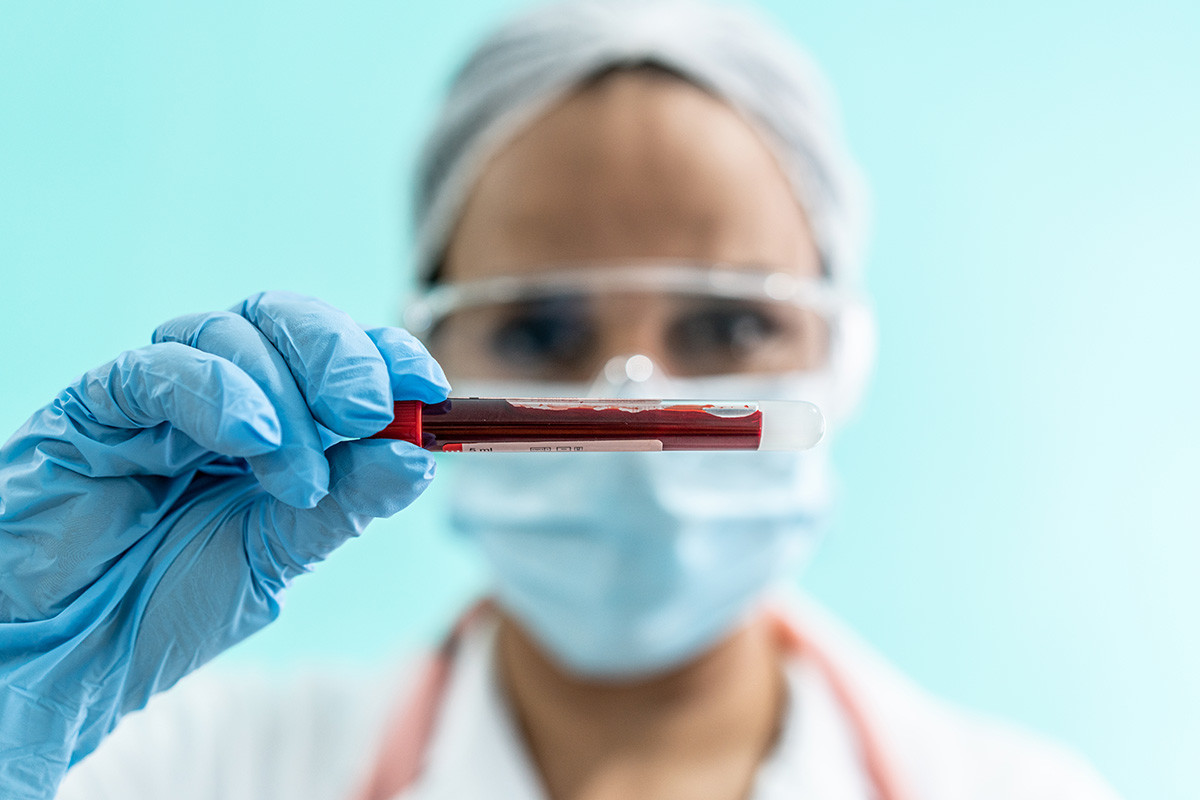
A young student rejoices of the beginning of the school year in front of the main building of Lomonosov Moscow State University
frantic00/Getty ImagesMost likely, yes. On August 20, 2021, the Coronavirus Emergency Response Centre allowed foreign students from all countries to enter Russia, regardless of the resumption of air travel with them or not.
However, students from those countries that still have travel restrictions will not be able to come to Russia, in which case they will be able to study remotely.

Each university draws up lists of foreign students in advance and sends them to the territorial offices of the, as reported on the Telegram channel of the Ministry of Education and Science of Russia. Entry into Russia for foreign students is based on these lists, so it is better to contact the admissions department of your university in advance and check whether they have sent your details to the above ministry.
In addition, you will need a study visa, which can be obtained from an embassy or consulate of the Russian Federation; it is issued only to those who have received a study invitation from a university or the Russian Ministry of Foreign Affairs.
Universities also require students to take out a Russian medical insurance policy in advance, which can be purchased online from a Russian insurance firm. The annual premium ranges from 2,000 to 14,000 rubles (approx. $27 to $190); recommended firms can also be found on official university websites. For example, the Higher School of Economics recommends:
At least 10 days before arrival in Russia, foreign students must inform the university of their date of entry. A negative COVID-19 PCR test certificate in Russian or English (preferably both) is required no more than 3 calendar days prior to arrival in Russia. Students already vaccinated in their home country can bring a certificate with a notarized translation into Russian, but this document does not remove the need for a PCR test.

After entering Russia, you need to take another COVID-19 test within three days. Express testing is done at airports, train stations and third-party medical labs, such as Gemotest, Invitro, etc. Until confirmation of a negative result, you must self-isolate in a dormitory or rented apartment, during which period classes will take place in online format. After that, you can attend on-campus lectures.
Some Russian universities additionally require a COVID-19 vaccination certificate for on-campus attendance, in which case one from your home country will also work. If you don’t have a certificate, you can register for vaccination at your university already in Russia.
Read more: How to enroll at a Russian university using the education-in-russia.com website
If using any of Russia Beyond's content, partly or in full, always provide an active hyperlink to the original material.
Subscribe
to our newsletter!
Get the week's best stories straight to your inbox